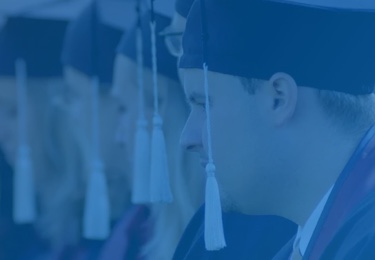PhD Positions (75%) in MainzVollpromotion
- Arbeitssprache
- Englisch
- Standort
- Mainz
- Bewerbungsende
- 23. Jan. 2025
- Antrittsdatum
- 01. Apr. 2025
Content Navigation
Überblick
Anzahl offener Stellen
3
Laufzeit
01. Apr. 2025 für 3 Jahre
Bewerbungsfrist endet am
23. Jan. 2025
Finanzierung
Ja
Art der Promotion
Vollpromotion
Arbeitssprache
Englisch
Erforderlicher Abschluss
Master
Studienfelder
Physik, Experimentalphysik
Beschreibung
Beschreibung
The DFG Research Training Group
Particle Detectors For Future Experiments - From Concept to Operation
at the Johannes Gutenberg University Mainz, Germany, offers
PhD Fellowships
to outstanding graduates who want to shape the next generation of particle detectors. The positions are available from April 2025 to work towards a doctorate (PhD). We are offering fixed-term positions
(75% FTE, TVL-13 pay scale) for three years.
Johannes Gutenberg University is one of the large universities in Germany, with about 31,000 students from more than 100 nations. Its physics department is among the leading research institutions in Europe and hosts the federal excellence cluster PRISMA+ with a focus on fundamental physics.
As part of the Research Training Group, you will work in the development of cutting-edge detector technologies for current and future experiments in astroparticle, particle, and nuclear physics. You will be integrated in high-profile experimental collaborations (ATLAS, BES-III, DUNE, IceCube, JUNO, MAGIX, P2, Project8, Mu3e, XENON or the new DRDs Calo/Liquids). You will participate in dedicated trainings on detector physics, get hands-on experience in an experimental project self-organized by the fellows, and will have an allocated travel budget to support an extended research stay with one of our collaborators abroad.
As our future fellow, you should have
- a very good master’s degree or diploma in physics
- experience with working in research laboratories, with potential first exposure to topics like scintillators, gaseous and semiconductor detectors, detector electronics, or hardware programming
- substantiated knowledge of nuclear, particle or astro-particle physics
- good command of written and spoken English. German language skills are advantageous but not required
- team orientation, good communication and organizational skills, ability to work independently
Interested? Please apply by
January 23th 2025 via Particle Detector Application process
for full consideration. The review of individual applications will start once all required documents have been received. Please name a principal investigator of the research training group who could act as supervisor (see particle-detectors.uni-mainz.de) or indicate which of the research areas (Photon-based Detectors, Ultra-fast data processing and reconstruction, High Performance Detectors) you would like to join.
Your application should include
- a detailed curriculum vitae
- a letter explaining your motivation for joining our research training group, your research interests and previous research experiences
- scans of university degrees including transcripts of records in German or English
- candidates with degrees from a university where neither English nor German is the teaching language must prove their language proficiency (B2 level or higher) by a certificate not older than three years
Documents are to be sent as a single pdf. Please arrange in addition for two signed letters of recommendation by senior scientists to be emailed separately to the above address. Referees are asked to use for this the form available at particle-detectors.uni-mainz.de/application. At least one referee must come from an institution other than your current one. All documents must be submitted in English or German, or translated and legally certified by the German embassy, consulate or a certified translator.
The Johannes Gutenberg University Mainz aims at increasing the percentage of women in academic positions and strongly encourages women scientists to apply. The university is an equal opportunity employer and particularly welcomes applications from persons with disabilities.
Erforderliche Dokumente
Erforderliche Dokumente
- Motivationsschreiben
- Lebenslauf
- Zeugnisse, Zertifikate
- Referenzen
- Sprachnachweis
